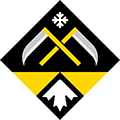#Thankscoach - National Coaches Week

Becoming a coach does not happen overnight. You don’t wake up one morning thinking “I want to be a coach tomorrow”. It is a highly respected profession shaped over many years of experience that requires years of training, interpersonal skills, respect within your community, and a passion for the sport.
Coaches have one of the largest impacts on athletic development: from young athletes being introduced to sports, to Olympians bringing home medals for their Country. They also have a role in helping athletes learn life skills that are important for their holistic development. It is rare for an athlete at any stage of their career to snowboard at their peak potential without their guidance.
National Coaches Week (NCW) is an opportunity to celebrate the positive impact coaches have on athletes and their communities across Canada. This annual campaign is an opportunity to recognize coaches for the integral role they play by taking the time to say #ThanksCoach. The NCW provides coaches with the recognition they deserve for all the time they devote to ensuring that Canadians live active and healthy lifestyles.
BUT WHAT IS A COACH?
While the general definition of a coach is someone who instructs or trains, there is much more than just sport-specific knowledge that goes into it. They are leaders and role models who work with athletes to unlock their true potential. They create positive judgement-free learning environments while ensuring the needs of all their athletes are met to ensure safe progression. Through intervention strategies, they support and facilitate athletes to help move them throughout their career. It is the athlete who makes progress with the proper guidance and support from the coaches’ communication, benevolence, and dedication makes progress.
Jacob Legault (“Jakester”), a recent addition to Canada Snowboard’s Slopestyle Team describes:.[They] will also teach the athlete to develop their values on and off the field”. He further mentions the importance of treating others the way you want to be treated, and how it is a fundamental value that applies as much to your team and opponents as it does to your coaches. He believes this is the difference between a respectful versus a disrespectful athlete. Coaches are instrumental in shaping how athletes perceive their sport community and ultimately affects the mindset of the athlete on their journeys to athletic success.
THE RIGHT STRATEGIES
Athletes need to be provided with the right knowledge and tools for success. Part of this is by utilizing numerous strategies to support the athletes in training and competition. Coaches work with the athletes to learn and improve new technical, and tactical strategies while taking a holistic approach that leads to the development of a well-rounded experienced athlete. “You only lose if you don’t learn” is how Megan Farrell recounts the best advice she ever received from her coach of the National Alpine Snowboard Team, Hannes Mustchlechner. Megan has utilized the wisdom and advice of Hannes to create her own strategies for her riding, constantly learning new skills, and ultimately becoming one of Canada’s greatest female alpine athletes.

Establishing a trusting relationship is integral to being a successful coach. This is how they get buy-in from their athletes to continue developing. Coaches consistently manage the emotions and expectations of their athletes, keeping their own opinions and emotions under control while leading by example. Honesty, patience, empathy, motivation, and support are all key strategies coaches utilize to develop a trusting relationship so they can provide them with the confidence their athletes need to continue pushing themselves.
A key example of this was when Audrey McManiman transitioned from Slopestyle to Snowboard Cross. Currently, she is on the National Snowboard Cross team, however, this accomplishment did not come without its challenges. Due to the difference in disciplines, and the nature of the sport Audrey felt out of her comfort zone. But with the guidance of her coach, she was able to overcome those challenges and find her footing. “Just trust yourself” is what National Snowboardcross Team Coach Maelle Ricker said to instill confidence. Sometimes the simplest words of confidence can have a big impact on an athlete.

Obviously, it is also important to get back to basics when the stress takes over at the starting gate and the guidance of a coach can be of great help in these moments of insecurity. "Just go out there and have fun" is some of the best advice Lisa Dejong received from her coach Greg Picard, head coach of the para snowboard team. It goes without saying that when the fun is gone, the performance of an athlete can be significantly affected.
THANK YOU

So this week we invite you to take a moment to say #ThanksCoach. Sometimes it can mean more to a coach than any performance. Most coaches do it for the love and to see the smiles on the athletes' faces when they achieve their goals. They do it for the moment when the athlete realizes that they have become a better version of themselves.
Canada Snowboard would like to take this opportunity to thank our coaching staff as well as all the dedicated coaches across Canada who give their hearts and souls to the ultimate goal of developing a love of snowboarding in youth. Thank you for what you do for the sport and have a great season.












